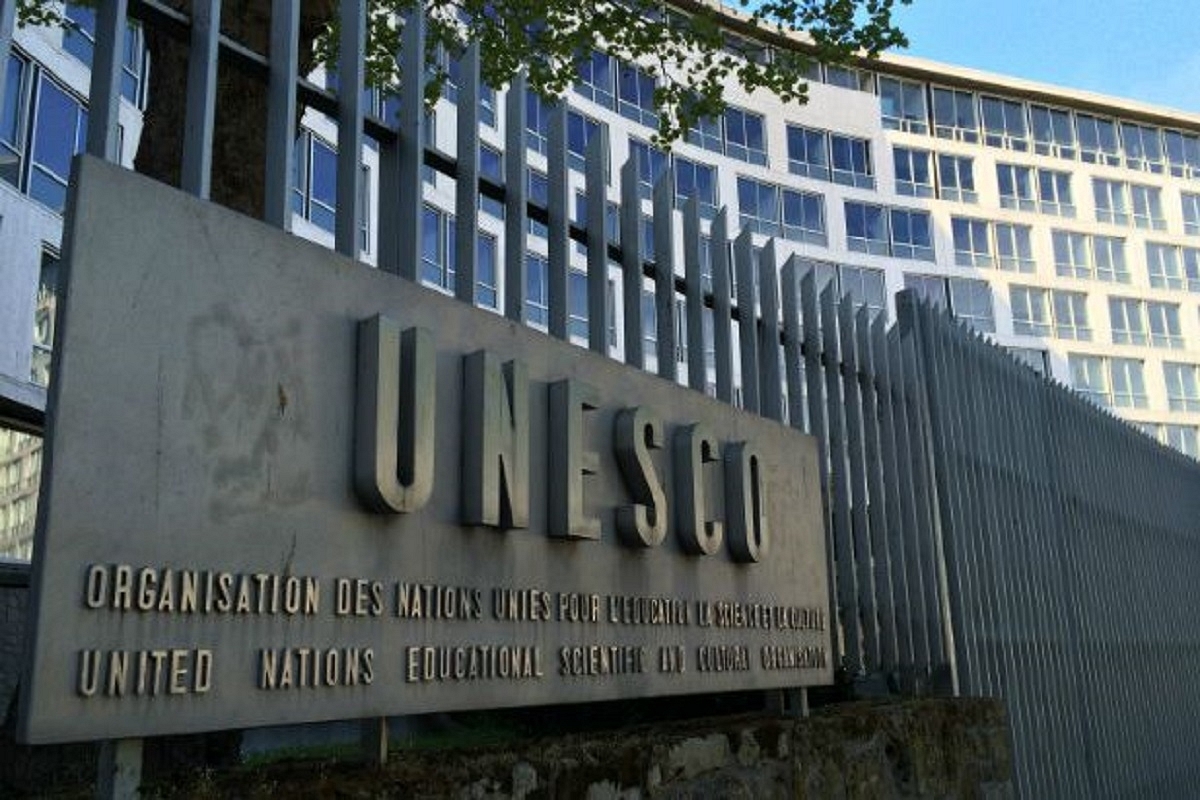News Brief
India Elected To UNESCO’s Committee For Safeguarding Intangible Cultural Heritage
- Some of the priority areas that India will focus on include fostering community participation and strengthening international cooperation through intangible heritage.

UNESCO headquarters in Paris.
India has been elected as a member of the Intergovernmental Committee of UNESCO’s 2003 Convention for the safeguarding of the intangible cultural heritage for the 2022-2026 cycle.
The elections for the committee took place during the 9th General Assembly of the 2003 convention held at UNESCO headquarters, Paris, from 5 to 7 July 2022.
The announcement to this effect was made by Union Tourism and Culture Minister G K Reddy.
Against the four seats falling vacant within the Asia-Pacific group, six countries, namely, India, Bangladesh, Vietnam, Cambodia, Malaysia and Thailand had presented their candidature. India received 110 votes from the 155 state parties that were present and voting.
The committee of the 2003 convention consists of 24 members and is elected in the general assembly of the convention according to the principles of equitable geographical representation and rotation. State members to the committee are elected for a term of four years.
Some of the core functions of the committee include promoting the objectives of the convention, providing guidance on best practices, and making recommendations on measures for the safeguarding of intangible cultural heritage. The committee also examines requests submitted by states parties for the inscription of intangible heritage on the lists as well as proposals for programmes and projects.
In the past, India has served two terms as a member of the committee of this convention. One from 2006 to 2010 and the other from 2014 to 2018. For its 2022-2026 term, India has formulated a clear vision for the protection and promotion of the intangible cultural heritage of humanity.
Some of the priority areas that India will focus on include fostering community participation, strengthening international cooperation through intangible heritage, promoting academic research on intangible cultural heritage, and aligning the work of the convention with the UN Sustainable Development Goals. This vision was also shared with the other state parties of the convention prior to the elections.
India ratified the 2003 convention for the safeguarding of the intangible cultural heritage in September 2005. As one of the earliest state parties to ratify the convention, India has shown great commitment towards matters related to intangible heritage and has actively encouraged other state parties to ratify it.
With 14 inscriptions on the representative list of intangible cultural heritage of humanity, India also ranks high in the listing. After the inscription of Durga Puja in 2021, India submitted the nomination for ‘Garba’ of Gujarat to be discussed in 2023.
As a member of the committee, India will have the opportunity to closely monitor the implementation of the 2003 convention. With the aim of strengthening the scope and impact of the convention, India seeks to mobilise the capacity of different actors worldwide in order to effectively safeguard intangible heritage.
Also noting the imbalance in the inscriptions on the three lists of the convention — urgent safeguarding list, representative list and register of good safeguarding practices — India shall endeavour to encourage international dialogue within the state parties to the convention in order to better showcase the diversity and importance of living heritage.
Support Swarajya's 50 Ground Reports Project & Sponsor A Story
Every general election Swarajya does a 50 ground reports project.
Aimed only at serious readers and those who appreciate the nuances of political undercurrents, the project provides a sense of India's electoral landscape. As you know, these reports are produced after considerable investment of travel, time and effort on the ground.
This time too we've kicked off the project in style and have covered over 30 constituencies already. If you're someone who appreciates such work and have enjoyed our coverage please consider sponsoring a ground report for just Rs 2999 to Rs 19,999 - it goes a long way in helping us produce more quality reportage.
You can also back this project by becoming a subscriber for as little as Rs 999 - so do click on this links and choose a plan that suits you and back us.
Click below to contribute.
Latest